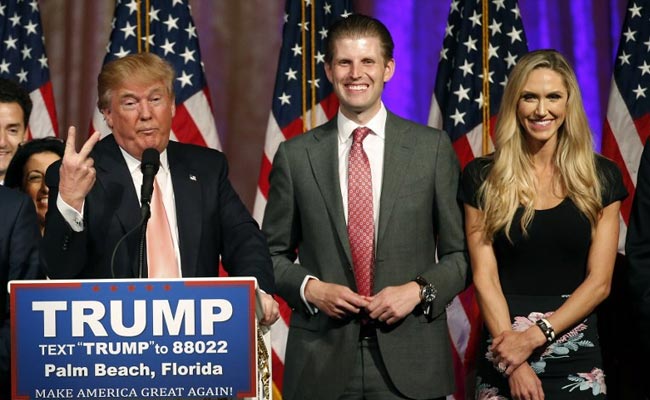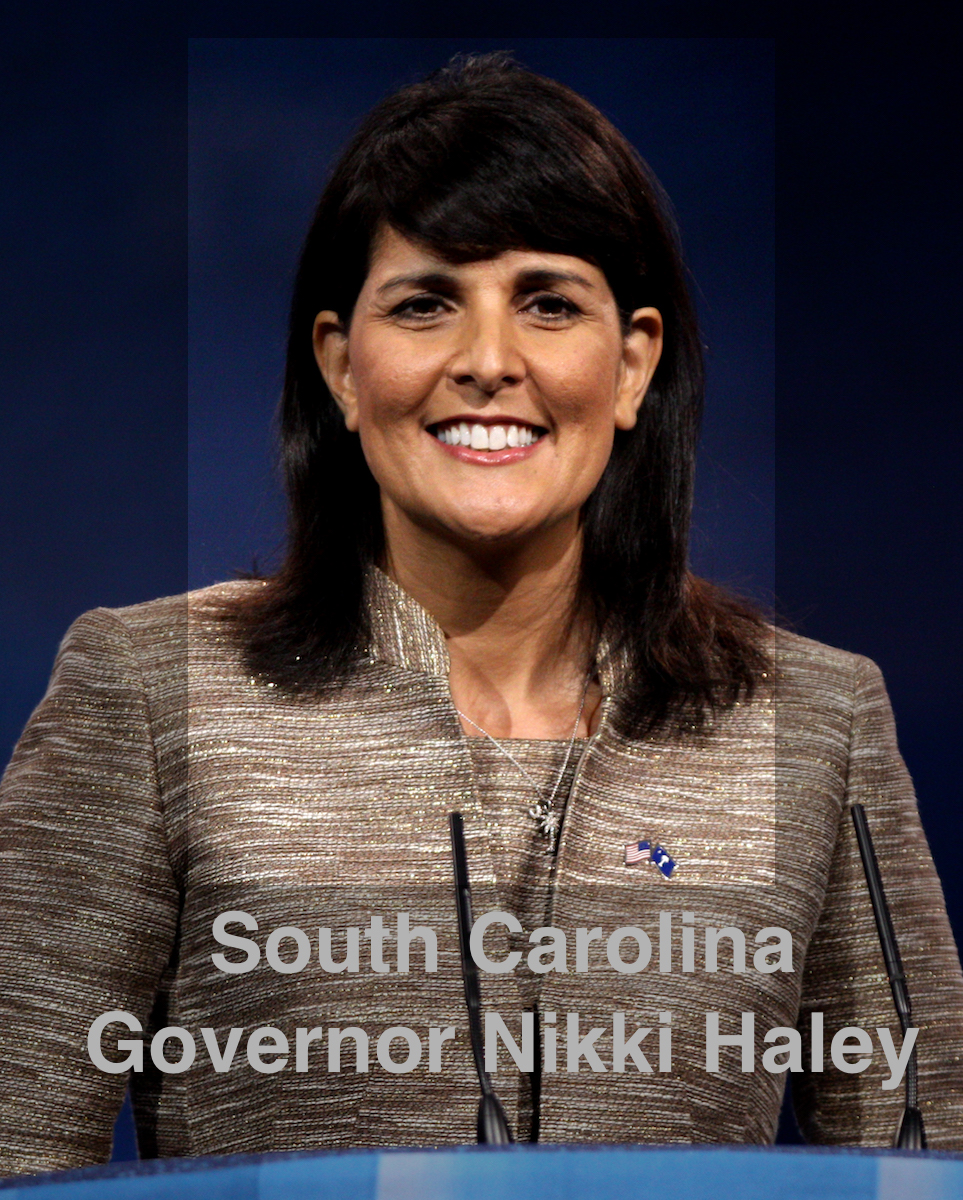
When Republicans gather for their next thought process before the primaries in 2016, one of the main issues all the candidates should be required to address is what each thinks of the controversial statements and arguments that Donald Trump has made about everything from Russia, Foreign Policy, Domestic Policy & how to fight ISIS.
Playing to fears can help candidates gain attention from the news media and the electorate, and it offers an easy way to depict their opposition as incapable of leading. According to a recent New York Times/CBS News poll, fears of terrorism have boosted Trump’s position.
Trump has a habit of taking campaign rhetoric to more dramatic places. In response to the horrific series of attacks conducted by ISIS, Trump kept saying things that led observers to ask whether he had finally reached the tipping point of going so far that there would be an electoral backlash.
Last month, Trump said that he would ban all Muslims from traveling to the United States. He has called for a federal registry of Muslims, while also promising to “take out” the families of terrorists. Trump says he would bring back the use of waterboarding. If it didn’t work, well, “they deserve it anyway,” he said. Trump has complained that Americans are too politically sensitive about profiling people who could be potential terrorist threats and “that’s part of the problem we have with our country.”
There has been a noticeably tough response from Republicans. “We need to aggressively take on radical Islamic terrorism but not at the expense of our American values,” said RNC Chairman Reince Priebus. “This is not conservatism,” said House Speaker Paul Ryan.
But some are skeptical about where the GOP stands. The New York Times editorial board published a blistering piece about Trump’s influence, writing, “The Republican rivals rushing to distance themselves from his latest inflammatory proposal … have been peddling their own nativist policies for months or years. They have been harshening their campaign speeches and immigration proposals in response to the Trump effect.”
Trump’s embrace of the politics of fear is not that surprising. There is a long tradition in campaigns of candidates who have played to the worst sentiments of the electorate during times when there are serious national security threats.
History’s lessons
Historically, when politicians recklessly use the politics of fear, bad things happen. On the most basic level, damaging rhetoric results in injustices being committed to innocent citizens. For example, World War I had a devastating impact on many German-Americans. Other immigrant groups were harassed and saw their loyalty questioned. In April 1918, Robert Prager, a German coal miner who had applied for U.S. citizenship, was lynched by a mob. In 1919 and 1920, Attorney General Mitchell Palmer led a massive crackdown on individuals and groups associated with the left during the “red scare.” In the years that followed, nativism fused with anti-communism to produce a severe crackdown on immigration.
Japanese-Americans were forced to live in internment camps during World War II, an action that has remained a huge black mark on Franklin Roosevelt’s record as commander in chief, as was his adminstration’s refusal to admit Jewish refugees who were desperately fleeing from Nazi Germany.
In 1968, George Wallace’s independent campaign for president stirred up racial and social resentment against the gains on racial equality and civil rights in the 1960s.
There are also political dangers for the Republican Party in using this kind of rhetoric, even though it often seems appealing in the short term. For decades, Democrats paid the price for being the party that intensified the war in Vietnam.
In the early 1980s, when Ronald Reagan used pointed language to speak about the “Evil Empire” of the Soviet Union, advisers urged him to be more proactive in pursuing peace after fears emerged in 1983 of the possibility of a nuclear war. President George W. Bush’s war in Iraq dragged down his presidency. It is not clear right now, even if polls temporarily show support for ground troops in Syria, that the nation would really be willing to take on another protracted ground war that will cost human lives and a big chunk of our national budget.
Finally, there are huge policy dangers that come from this kind of fear strategy, as it has historically stimulated a dynamic that drives political parties into poor decision-making. This undermines the nation’s ability to effectively combat threats.
During the 1950s, too many members of both parties sat by silently as Joseph McCarthy and his allies cast an extraordinarily wide net in the search for alleged communists in the United States, violating civil liberties and damaging lives in the process. These actions polarized and divided a nation otherwise united in the fight against communism.
The end of the conservative party
If you look beyond Donald Trump’s comprehensive unpleasantness – is there a disagreeable human trait he does not have? -you might see this: He is a fundamentally sad figure. His compulsive boasting is evidence of insecurity. His unassuageable neediness suggests an aching hunger for others’ approval to ratify his self-admiration. His incessant announcements of his self-esteem indicate that he is not self-persuaded. Now, panting with a puppy’s insatiable eagerness to be petted, Trump has reveled in the approval of Vladimir Putin, murderer and war criminal.
Putin slyly stirred America’s politics by saying Trump is “very .?.?. talented,” adding that he welcomed Trump’s promise of “closer, deeper relations,” whatever that might mean, with Russia. Trump announced himself flattered to be “so nicely complimented” by a “highly respected” man: “When people call you brilliant, it’s always good.” When MSNBC’s Joe Scarborough said Putin “kills journalists, political opponents and invades countries,” Trump replied that “at least he’s a leader.”
Besides, Trump breezily asserted, “I think our country does plenty of killing also.” Two days later, Trump, who rarely feigns judiciousness, said: “It has not been proven that he’s killed reporters.”
Well. Perhaps the 56 journalists murdered were coincidental victims of amazingly random violence that the former KGB operative’s police state is powerless to stop. It has, however, been “proven,” perhaps even to Trump’s exacting standards, that Putin has dismembered Ukraine. (Counts one and two at the 1946 Nuremberg trials concerned conspiracy to wage, and waging, aggressive war.)
Until now, Trump’s ever-more-exotic effusions have had an almost numbing effect. Almost. But by his embrace of Putin, and by postulating a slanderous moral equivalence -Putin kills journalists, the United States kills terrorists, what’s the big deal, or the difference? – Trump has forced conservatives to recognize their immediate priority.
Certainly conservatives consider it crucial to deny the Democratic Party a third consecutive term controlling the executive branch. Extending from eight to 12 years its use of unbridled executive power would further emancipate the administrative state from control by either a withering legislative branch or a supine judiciary. But first things first. Conservatives’ highest priority now must be to prevent Trump from winning the Republican nomination in this, the GOP’s third epochal intraparty struggle in 104 years.
In 1912, former president Theodore Roosevelt campaigned for the Republican nomination on an explicitly progressive platform. Having failed to win the nomination, he ran a third-party campaign against the Republican nominee, President William Howard Taft, and the Democratic nominee, New Jersey Gov. Woodrow Wilson, who that November would become the first person elected president who was deeply critical of the American founding.
TR shared Wilson’s impatience with the separation of powers, which both men considered an 18th-century relic incompatible with a properly energetic executive. Espousing unconstrained majoritarianism, TR favored a passive judiciary deferential to elected legislatures and executives; he also endorsed the powers of popular majorities to overturn judicial decisions and recall all public officials.
Taft finished third, carrying only Utah and Vermont. But because Taft hewed to conservatism, and was supported by some other leading Republicans (e.g., Sen. Henry Cabot Lodge, one of TR’s closest friends, and Elihu Root, TR’s secretary of war and then secretary of state), the Republican Party survived as a counterbalance to a progressive Democratic Party.
In 1964, Barry Goldwater mounted a successful conservative insurgency against a Republican establishment that was content to blur and dilute the Republican distinctiveness that had been preserved 52 years earlier. Goldwater defeated New York Gov. Nelson Rockefeller for the nomination, just as Taft had defeated TR, a former New York governor. Like Taft, Goldwater was trounced (he carried six states). But the Republican Party won five of the next seven presidential elections. In two of them, Ronald Reagan secured the party’s continuity as the custodian of conservatism.
In 2016, a Trump nomination would not just mean another Democratic presidency. It would also mean the loss of what Taft and then Goldwater made possible – a conservative party as a constant presence in U.S. politics.
It is possible Trump will not win any primary, and that by the middle of March our long national embarrassment will be over. But this avatar of unfettered government and executive authoritarianism has mesmerized a large portion of Republicans for six months. The larger portion should understand this:
One hundred and four years of history is in the balance. If Trump is the Republican nominee in 2016, there might not be a conservative party in 2020 either.





Be the first to comment